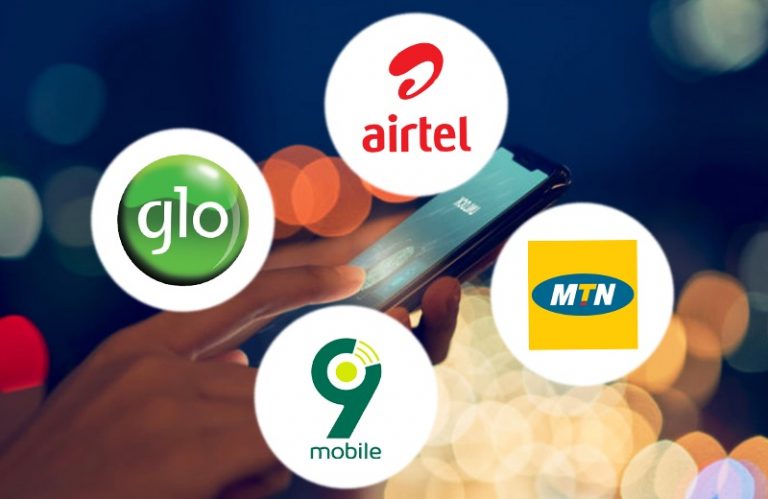
MTN Group and Airtel Africa have entered into a strategic partnership to share mobile phone network infrastructure in Nigeria and Uganda, a move aimed at reducing costs while expanding service coverage.
The agreement, announced by both companies on Wednesday, comes at a time when telecom operators across Africa are facing mounting financial pressure to expand their networks, particularly with the growing demand for high-speed internet and digital services.
The collaboration is expected to optimize network investments and facilitate faster deployment of 5G and broadband services in underserved areas, particularly rural regions where inadequate infrastructure has stalled digital development, including online learning and e-commerce.
Register for Tekedia Mini-MBA edition 19 (Feb 9 – May 2, 2026).
Register for Tekedia AI in Business Masterclass.
Join Tekedia Capital Syndicate and co-invest in great global startups.
Register for Tekedia AI Lab.
Backdrop: Tariff Hike Sparks Demand for Better Services
This development comes on the heels of the recent 50% tariff increase approved by the Nigerian Communications Commission (NCC), which has significantly impacted mobile users and driven expectations for improved network services. The tariff hike has placed additional financial strain on consumers, making it imperative for telecom operators to ensure that the quality of service matches the increased cost.
With millions of Nigerians now paying more for mobile and internet services, complaints about poor network quality have intensified. The lack of reliable internet in many rural and semi-urban areas has stifled digital inclusion, making remote work, online learning, and financial transactions challenging for millions.
The partnership between MTN and Airtel Africa is seen as a direct response to these concerns, as both companies seek to maximize coverage without incurring exorbitant costs.
Scope of the Agreement
According to statements released by MTN and Airtel Africa, the partnership is not limited to Nigeria and Uganda. The companies have revealed plans to explore similar collaborations in Congo-Brazzaville, Rwanda, and Zambia, among other African markets.
Key aspects of the partnership include:
- Radio Access Network (RAN) Sharing – This constitutes the most significant portion of network deployment costs. Both companies aim to optimize network expansion while minimizing capital expenditure by sharing RAN infrastructure.
- Fiber Infrastructure Sharing – The agreement also covers commercial and technical arrangements for sharing fiber-optic networks, improving connectivity while reducing redundancy.
- Joint Fiber Network Construction – Where necessary, the two telecom giants may collaborate on building new fiber networks to increase data capacity and reliability in targeted regions.
While the agreement marks a major step toward cost efficiency, both companies emphasized that it does not prevent them from engaging in similar partnerships with other telecom operators in different markets.
MTN Group CEO Ralph Mupita highlighted the company’s commitment to improving digital access across Africa.
“As MTN, we are driven by the vision of delivering digital solutions that drive Africa’s progress,” Mupita stated. “We continue to see strong structural demand for digital and financial services across our markets. To meet this demand, we continue to invest in coverage and capacity to ensure high-quality connectivity for our customers. That said, there are opportunities within regulatory frameworks for sharing resources to drive higher efficiencies and improve returns.”
Airtel Africa CEO Sunil Taldar emphasized the cost-saving benefits of infrastructure sharing, particularly in rural areas where the business case for separate networks is weak.
“Sharing infrastructure allows operators to extend their network coverage more quickly, especially in rural or less densely populated areas where it might not be economically viable to build separate networks,” Taldar said.
Why Infrastructure Sharing Matters
For years, industry experts have touted network infrastructure sharing as a key strategy to cut costs while expanding telecom services, particularly in Africa’s challenging business environment. Telecom operators have faced rising operational expenses, currency fluctuations, and the high cost of deploying next-generation networks such as 5G.
By partnering to share infrastructure, MTN and Airtel Africa are not only reducing capital expenditure but also accelerating network rollout in areas that have been historically underserved. This is crucial at a time when mobile penetration in Africa is increasing, and the demand for reliable internet access is surging.
Key benefits of infrastructure sharing include:
- Lower Costs for Operators – Telecom companies save billions in investment costs by eliminating duplication in infrastructure development.
- Faster Network Expansion – With shared infrastructure, companies can deploy services more quickly, especially in rural and semi-urban areas.
- Improved Network Quality – With the rising cost of telecom services, shared infrastructure ensures that consumers get better service delivery.
- Environmental Benefits – Fewer cell towers and reduced power consumption contribute to lower carbon emissions.
Challenges and Potential Roadblocks
While the partnership offers multiple benefits, it is not without challenges. Regulatory approvals, revenue-sharing agreements, and technical compatibility could pose significant hurdles. The competitive dynamics of the telecom industry may also complicate full implementation, as companies continue to battle for market dominance.
Additionally, questions remain about consumer benefits—whether telecom companies will pass on cost savings to users or maintain high tariffs despite reducing their expenditures.
However, the MTN-Airtel Africa partnership is expected to set a precedent for broader industry-wide collaborations across Africa. With the region’s telecom sector witnessing rapid digital transformation, infrastructure-sharing agreements could become the norm, rather than the exception.



